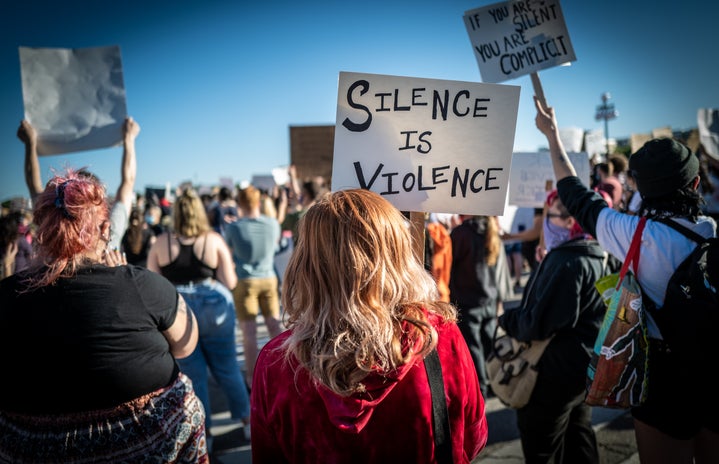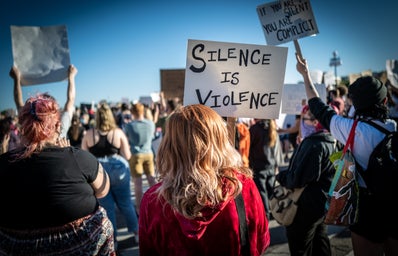They say ‘prevention is better than cure’, but is this the case with regards to GBV in South Africa?
GBV is nothing unheard of. It has been roaming the local and international streets for decades now, affecting approximately 35% of women worldwide, while bearing in mind that a significant number of people don’t report their cases as they feel unsafe in doing so. The only change is that victims are more vocal now, and the fight against GBV is being mobilised more than ever before. With these changes, perhaps it’s time to relook at our approach to the matter.
According to US Aid, Gender-based violence (GBV) is a human rights violation, a public health challenge, and a barrier to civic, social, political, and economic participation. GBV is attributed, mostly, to toxic masculinity, entitlement, and patriarchy. But, patriarchy plays a bigger role in South Africa. It is also rooted in outdated beliefs about women, which are backed by patriarchy. SaferSpaces, an online knowledge sharing platform, reported that, “In many cultures, men’s violence against women is considered acceptable within certain settings or situations, thus making it particularly challenging to address GBV effectively.” For the longest time, society has been holding women back and subjecting them to men and ‘ownership’ to men, which has made men feel that they can easily take advantage of women or take what they want from them.
In South Africa, GBV is further advanced by the attitudes towards victims. During an interview with CNN, a news platform, Nthabiseng Moleko, Commissioner for the Gender Equality Commission said, “there are already acts and laws in place regarding GBV, but the real problem is the attitude when implementing these, the pace at which you see the turn-around, the manner in which victims and perpetrators are dealt with in court (victims are further traumatised in courts) and the attitude at police stations when statements are taken.” We have all heard of cases whereby policemen vilify victims and also make fun of disabled women who were raped, asking who would rape YOU? They also don’t immediately attend to such cases and often tell victims to come back the next day when they’re calmer, thus turning them away. Once victims go back home, they often get discouraged to pursue laying charges because of the attitude and welcome received at the police station – the institution at which they were meant to get help.
Previous Approaches to GBV
There are various formal and informal approaches that have been put in place to deal with GBV. The formal, more notorious one is the annual 16 Days of Activism. The campaign has been effective in advocacy and awareness raising purposes over the years, but it is a short-lived campaign. There is a general consensus that in order to address and prevent Violence Against Women and Children (VAWC), it needs a concerted effort that goes way beyond the sixteen days, because GBV is an everyday reality for women and children – not an annual thing.
The slightly misinformed approaches have been to teach women and children how not to fall victim to GBV. Although this strategy might have worked a few years ago, it is not relevant anymore. Women and children have exhausted all those learnings and precautions to stay safe, but they fall victim regardless. It’s time to address the perpetrators – potential and existing.
New Approaches
A little goes a long way. The first port of call when someone has been violated through GBV is the police station, therefore, the attitude at the police station needs to change. There should be more sensitivity at the stations when GBV cases are reported. Victims should feel free and safe to go report any violation to them without feeling judged or belittled.
The proposition – we must start addressing men, because the problem seems to lie with them. We need to educate men more about this and aim more campaigns at them. Tshepo Modise*, a 26-year old male from Polokwane, believes that, “GBV campaigns are for the elite.” He says they do not talk to the guy from Kasi (townships) or rural guys, who perform these atrocious acts. These are usually guys who are illiterate, and coupled with society’s reinforcement of patriarchy, they don’t see how GBV is wrong. We cannot necessarily blame them if we don’t educate them. So, more campaigns need to speak to such people.
To the guys – Change starts within social circles. If a friend makes snide remarks that enable or support GBV, they need to be called out. The conversation needs to be ongoing, especially amongst men. Constant conversations and calling out will help change the mentality that supports GBV. If GBV was previously associated with proving masculinity, overtime through the conversations, the perception changes. By the time we hit the streets to protest GBV, it’s a bit too late because lives would have been lost. Nonetheless, show up to these protests to show solidarity. Use social media to spread and raise awareness of GBV and volunteer at organisations that support the fight against GBV, be it with your time or money.
In 2019, President Cyril Ramaphosa declared violence against women a national crisis. Following that, the government has recently adopted a plan of action for women, peace and security. These are a great start; however, implementation needs to follow as soon as possible. But, as we wait for implementation, we need to engage more men and keep the conversation going. There is a lot of unlearning to do, but it is possible and for a good cause.
We’ve been curing GBV. Maybe it’s time to start preventing it!
Asterisk (*) – Not real name


